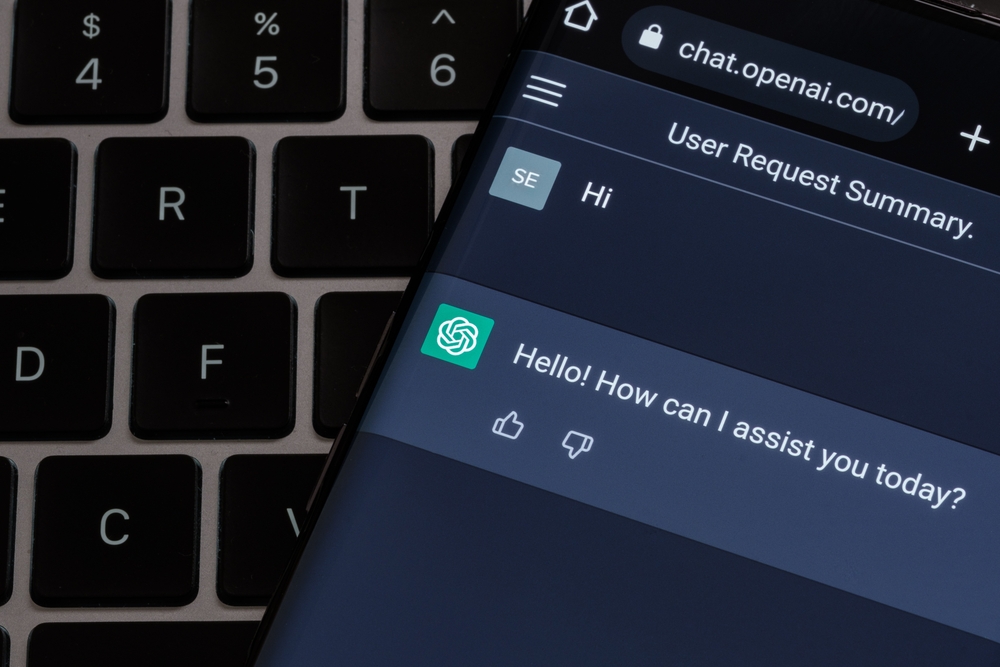Can ChatGPT really plan our vacations? Will it be a good plan? We have all heard about ChatGPT’s amazing ability to discuss almost any topic. It can make us a business plan, advise us on health or beauty topics, and even tell us short stories about fantastical worlds. So, why not about our next vacation?
ChatGPT is excellent at speaking to us like a human, in a close and simple language that makes us understand immediately the ideas it wants to convey. That is its greatest strength. It is also decent at remembering things it has read when it was trained with vast amounts of text from the internet, books, and other sources. If we ask ChatGPT about our next vacation, we will find a well-written text that tells us about places to visit that it has read about or cities that can adapt to our tastes the most.
The problem is that what we want when we go on vacation are not lists of emblematic sites, how to get to them, and an approximate price. At best, you will be able to visit a tourist destination and go to the sites that everyone knows, and at worst, you won’t be able to carry out your plan because ChatGPT may give you partial, erroneous, or outdated information.
What we want on our vacations are experiences. Experiences that make us remember those vacations as something magical, vibrant, and exciting. Of course, at a reasonable price. We want our vacations to be safe too, both at the destination and before setting out on the trip, reducing uncertainty. And ChatGPT doesn’t give us that without help.
Data, Information, and Knowledge
We live in the age of data. Data surrounds us, is generated non-stop, and speaks about all topics of human knowledge, including tourism. But raw data is like the ingredients of a dish: It needs work to become something we can joyfully consume. The Internet is full of data that we can consult and that require a lot of work on our part to contextualize.
With data, you can cook up information. Information is related and contextualized data. A travel blog provides information. With this information, we can better understand a destination. We can see different places to visit, some prices, maybe an order to follow, and thus get a vague idea of what our vacations could be like. Luckily, others do the job of connecting data and contextualizing it to produce information. ChatGPT is good at giving information. It is a good source to consult when we go on vacation and are gathering information on how to get to our destination, what to do there, etc.
Is there something more useful than information? Yes, knowledge. Knowledge is information on which we can make decisions, actionable information. Knowledge connects and relates information so that we can make the decision to go on a trip to a destination.
Think of it this way: When we go on vacation, we look for information and try to connect it in our head to make a decision: We need information about how to get to our destination and how much it will cost us. About where to stay. About what to eat, what to visit, what activities to do, etc. In the end, we create knowledge in our head with that information.
The best source of knowledge we can access is from a friend who knows us and has been there. They will tell us what’s best, what’s a tourist trap, in which area we should stay, and which restaurants serve the most authentic and delicious food. Also, that friend who knows us advises us on what you might not like or might immensely enjoy.
ChatGPT, as it comes without modifications, does not give us knowledge. It cannot. It doesn’t know us or what we’re looking for, nor does it really know the places we’re going to, nor does it have all the information. For these tasks, ChatGPT is quite limited.
Limitations of ChatGPT
We already know that ChatGPT does many things well, but it also has strong limitations.
Firstly, ChatGPT is not updated. Most of the information it has is prior to 2021. And 2 or 3 years in the travel industry is a long time. Not knowing the present is a huge limitation. One that tells what to find then, but not what you find now. Are there political conflicts? Natural disasters? prices skyrocketing? Good luck learning these topics in ChatGPT.

One of the biggest problems we can encounter is legislative changes that ChatGPT does not know about. I would not trust ChatGPT’s answers to know what visa I need to enter a country or what the airline’s policy is on traveling with pets.
In addition, since ChatGPT does not have updated information, it cannot tell you what activities are at your tourist destination. Is there a festival? Concerts? Sporting events? Gastronomy fairs? ChatGPT encourages you to make visits to monuments that don’t move, timeless, but it will not send you to live experiences that are happening at your destination.
Another limitation is that the information ChatGPT gives you is not actionable. An airline does not only give me information about a flight but also indicates how I can get the ticket. Similarly, I can’t book a hotel or a restaurant, or buy a ticket to a museum.
The last major limitation is that ChatGPT is not truthful. It makes up data, actions, or even travel conditions. Due to a limitation called hallucination, we can’t trust 100% of the information from ChatGPT. In the end, we will have to cross-check what it tells us, adding more uncertainty to our decision.
All this makes ChatGPT move even further away from that knowledge we want to acquire. ChatGPT is one of many sources you will have to consult: Neither the most truthful nor the most important. Also, because it does not have updated information, it is not actionable and it is not truthful, it generates a lot of uncertainty. And uncertainty is the enemy of action.
Smartvel and ChatGPT
If we stop reading here, the conclusion is clear: ChatGPT is not useful for planning a vacation, its limitations are too important, and it does not give the traveler what they need.Is there any way to take advantage of its ability to express itself in natural language and talk to us about possible destinations without suffering from its limitations? Short answer: Yes. Long answer: Keep reading.
We said that ChatGPT is limited (among other things) by its lack of updated information, its inability to action our decisions, and the occasional lies. If only there was someone who had that knowledge about tourist destinations… what to do there, how to get there and at what prices, what documentation or vaccines we need to enter our destination, etc.
Smartvel. Smartvel specializes in consuming data and returning knowledge: actionable information that we can use to make decisions. Smartvel provides this information not only through an API but also through different widgets that allow the user to configure their travel experience tailored to them. We tell you if you need a visa knowing your nationality, destination, status, age, etc. We tell you what activities you can enjoy after filtering the categories you like. We tell you which restaurants to go to depending on what you want to spend and the food you like. That’s what we mean by knowledge.

But knowledge must also be accessible, and not all users prefer the use of a widget to the use of a chat in natural language. The future is near: We will be able to feed natural language models like ChatGPT with our own, updated and truthful knowledge. ChatGPT becomes a mere spokesperson. One that does not generate its own information but drinks from a source of knowledge curated and improved for years to be complete, truthful, actionable. A spokesperson who expresses himself very well but knows what he has to say because an expert has told him.
We return to the initial question: Would you let ChatGPT determine where to travel during your holidays? Only if it is the mechanism to answer me in natural language and never by itself, because if I want quality, truthful, actionable information adapted to my tastes and needs I also need Smartvel in the equation.





